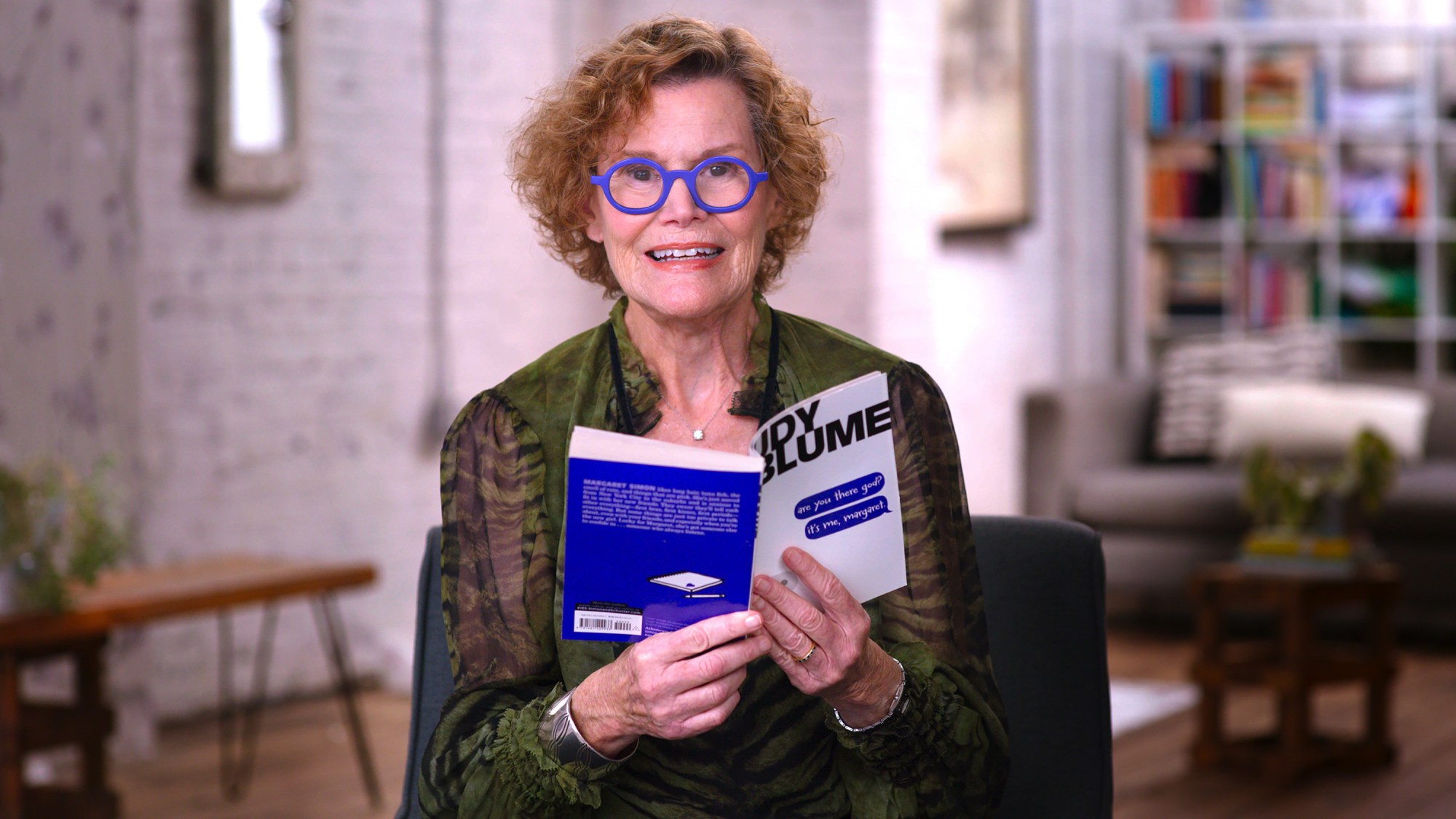
- Festivals
Sundance 2023: Docs: “Judy Blume Forever” Celebrates Mother of Modern Young Adult Fiction
Childhood innocence is a beautiful thing that should be sought to be reasonably protected. But too often, both within families and on a macro level, a mistake is made in thinking that the best way to achieve this is through sheer avoidance rather than engagement.
The result, generation after generation, is tens of millions of kids who feel confused and ashamed about normal occurrences like puberty, menstruation and masturbation because no adult in their life ever makes themselves available to talk or answer lingering questions about such topics.
An entertainingly invaluable resource, friend, and one-woman diversionary program for many would-be lost souls receives her (overdue) due in the documentary Judy Blume Forever, a world premiere at the 2023 Sundance Film Festival. In beloved novels like “Are You There God? It’s Me, Margaret,” “Tales of a Fourth Grade Nothing,” “Deenie,” “Blubber,” “Freckle Juice,” “Superfudge” and more, Blume crafted compelling, highly relatable characters, and spoke to adolescents with honesty about insecurities and challenges in their lives. In doing so, she assuaged fears and loneliness across multiple decades.
Blume’s reward? Over 80 million copies of her books sold, and a foundational flag firmly planted in the genre — young adult fiction — that now rules all publishing. Co-directed by Emmy Award winners Davina Pardo and Leah Wolchok, and set for eventual premiere via Amazon Prime Video, Judy Blume Forever celebrates the estimable legacy of this one-of-a-kind author.
Born and raised in Elizabeth, New Jersey, to a dentist father and housewife mother, Blume recalls a mostly happy childhood in the film, but one also informed by what she notes as the common suburban façade of the 1950s, in which people pretended to be happy when they weren’t. She also recounts that since her father was the only one of seven children in his family to live past 16 years old, she was familiar from a young age with stories of death, which informed her own prayers and frequent sense of bargaining with God.
Blume married at 21 years of age, while still in college, and two children soon followed — daughter Randy and son Larry. As she settled into life as a homemaker, her husband supported her creative impulses and decision to start writing, though more as an acquiescence than encouragement.
Several stabs at illustrated children’s books didn’t connect. But Blume ditched the drawings, and with the 1970 publication of the aforementioned, seminal “Margaret” (whose film adaptation releases in April), she found her niche: tackling adolescent uncertainty and awkwardness with sensitive first-person narratives. A string of bestsellers followed, which the first half of the movie chronicles, along with its subject’s personal life.
After unpacking the even greater controversy of Blume’s 1975 novel “Forever…” which addresses a pair of 18-year-olds losing their virginity to one another, the rest of the film details some of her later work, like “Wifey” (Blume’s first effort at a book ostensibly aimed at adults), “Tiger Eyes,” “Summer Sisters,” and her final novel “In the Unlikely Event,” which is built around childhood recollections of three real-life plane crashes in her hometown.
As with her prose, there’s a charming, forthright eloquence to Blume in conversation — she’s sunny, candid, and a wonderful guide through her life and career, not bypassing moments of regret. Judy Blume Forever also features loving memories and tributes from a number of high-profile interviewees, including Molly Ringwald, Lena Dunham, Samantha Bee, and Anna Konkle.
But Pardo and Wolchok (Very Semi-Serious) rather justifiably reserve a good bit of time in their film for other authors who discuss both their first contact with Blume’s writing, and the creative inspiration in many cases it later gave them, as well as its broader influence on them while they were still young. Several cite as illuminating and instructive Blume’s lack of pat, clichéd resolutions, and relative moral complexity — how, as in “Blubber,” for example, a victim of bullying and cruelty can also perpetrate on others the same hurt they’ve experienced.
The most touching portions of the movie, however, come from several women who were among the thousands of teens and children who wrote to Blume. Some of these fans established ongoing correspondence with Blume, who provided support and advice. These moments reflect the huge heart of Blume as a person — trying to throw her arms around the world — but also provide Judy Blume Forever with the perfect example of how meaningful art and literature can help shape and save lives.

